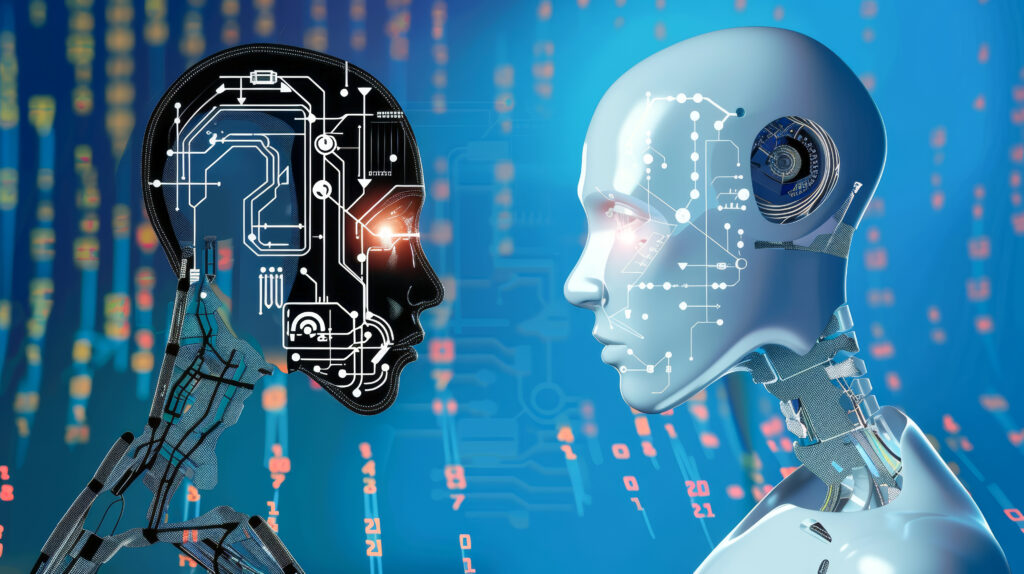
The current technological leap could accelerate us toward a future of unprecedented material abundance; a future that fulfils our deepest human desires – to learn, create, and connect on a level never before imagined
As we approach the end of this decade, the potential for artificial intelligence to surpass human cognitive abilities presents a horizon brimming with transformative possibilities. Visionaries like Ray Kurzweil have long forecasted a time when digital minds, with their impeccable memory and lightning-fast processing, will revolutionise fields that have progressed slowly for decades, such as robotics, nanotechnology, and genomics. This technological leap could accelerate us toward a future of unprecedented material abundance, where challenges that once seemed insurmountable, like aging, might be overcome. This isn’t just about a world filled with advanced gadgets, but a future that fulfils our deepest human desires – to learn, create, and connect on a level never before imagined.
Though this vision might seem like a utopian dream, history reminds us that humanity has taken similar leaps before. In the distant past, our hunter-gatherer ancestors lived under constant threat from starvation and violence, leaving little room for creativity or philosophical thought. The advent of agriculture, however, provided a foundation of stability that allowed for the development of specialised skills, which ultimately led to the rise of civilisation– bringing with it literature, law, science, and engineering.
The next significant leap forward is likely to occur in education. Historically, education was a means to nourish the mind and cultivate virtue, but the Industrial Revolution shifted its focus toward preparing individuals for economic success. In today’s world, children often learn with the primary goal of securing a career, which can sometimes stifle their natural curiosity and love for discovery. However, as AI makes goods and services nearly free, the pressure to structure our lives around jobs may diminish. This could usher in an era where learning is pursued for its own sake, fostering the growth of knowledge and wisdom that truly defines our humanity.
Imagine a future where educational experiences are richer and more immersive. Rather than merely reading about ancient Rome, students could explore the Forum in virtual reality and engage in debates with a highly advanced AI representation of Cicero. Instead of sitting in crowded lecture halls, learners could benefit from personalised instruction with digital tutors tailored to their individual learning styles.
AI will also have a profound impact on creativity. Today, expressing artistic ideas often requires technical skills and resources that not everyone possesses, leaving many brilliant ideas trapped in the minds of individuals. However, emerging systems hint at a future where anyone can bring their creative visions to life. Imagine being able to vocalise a concept and see it materialise as a painting or hum a melody and collaborate with a digital composer to turn it into a symphony.
These creative breakthroughs will not only extend our lives but enrich them with an abundance of art, music, literature, and other forms of expression. The time we gain could be spent not only pursuing our passions but also sharing meaningful experiences with our loved ones, envisioning a future where we can witness our great-grandchildren grow into adulthood in good health.
As we stand on the threshold of this transformative era, it’s crucial to recognise that these technological advancements have the potential to enhance, rather than diminish, our humanity. By embracing these opportunities, we can help shape a society that values learning, creativity, and connection above all else.
The future will be about:
- Superhuman Intelligence: AI systems are expected to surpass human cognitive abilities, enabling them to process information and analyse data at unprecedented speeds.
- Perfect Memory: These digital minds will possess perfect recall of all research and data, accelerating knowledge and innovation.
- Accelerated Progress: Fields like robotics, nanotechnology, and genomics will experience rapid advancements, turning slow progress into breakthrough achievements.
- Material Abundance: AI’s ability to produce goods and services at minimal cost could lead to a society where scarcity is greatly reduced, improving overall quality of life.
- Conquering Aging: AI-driven advancements in medicine could lead to significant extensions of human lifespan and improvements in health.
- Enhanced Learning: Education will evolve to focus on nurturing curiosity and creativity, supported by immersive experiences like virtual reality and AI tutors.
- Democratisation of Creativity: AI tools will make creative expression accessible to all, removing traditional barriers of skill and resources.
- Deepened Human Connection: With economic pressures alleviated, people will have more time to connect and share meaningful experiences, enriching relationships.
- Human Flourishing: The ultimate goal is a future where technology enhances human experiences, allowing individuals to focus on learning, creating, and connecting, rather than merely surviving.
This future is not just about technological advancement but about the blossoming of human potential, allowing us to explore and expand our innate capacities for wisdom, creativity, and connection.


